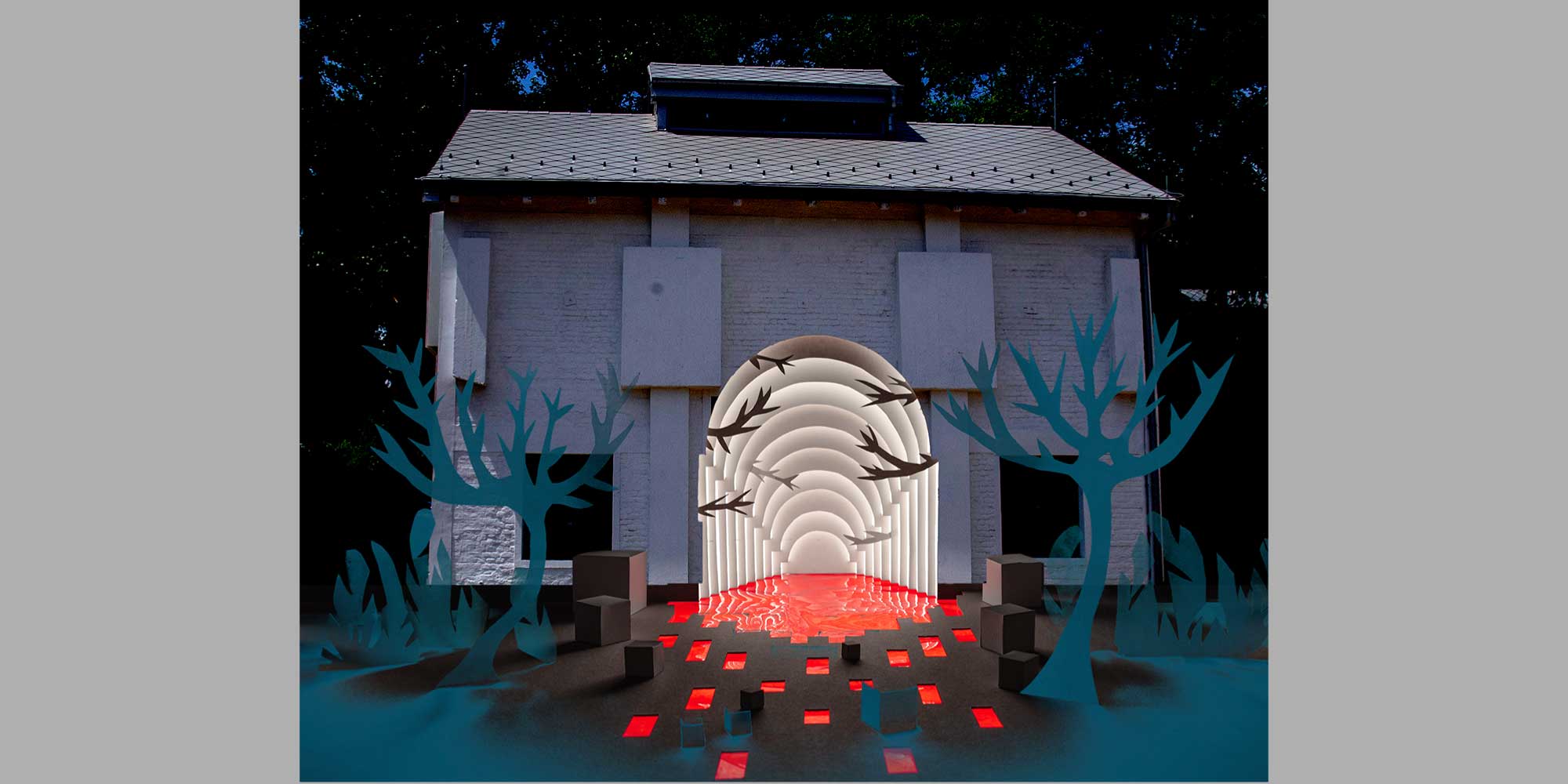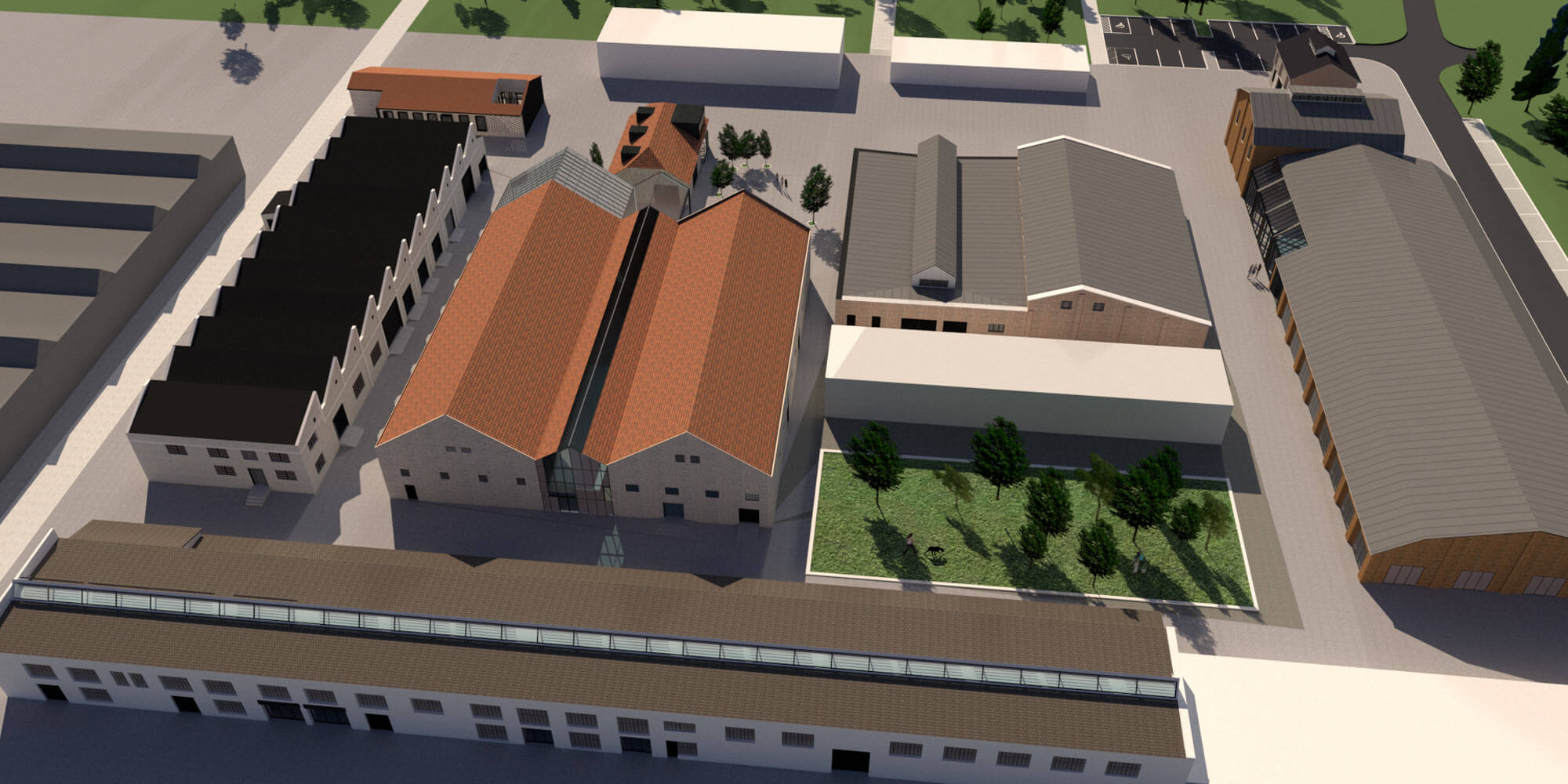Differences / Razlike
This topic explores the idea of imagination, as a link between reality and fiction, physicality and everything that exists.
The garden as a metaphor is a representation of an idealized place of life, an illusion of living. The thematic task is based on the notion of accelerated movement, movement of people, but also following all the new circumstances in that movement. Precisely for this reason, such assimilations in movement can be explained through a metaphor in the expression, such as: blue book (bus) or satin (city) and other examples, which explain the expression of the movement of the image of the city through us. Reading these images through movement, speed, internal impulses or realized relations is the primary thematic segment of this project.
The theme Garden directs and marks the moment and the connection between the accidental and the meaningful, the inner and the outer, the spatial and the illusionistic, the demographic, the urban, but also the critical aspect of the environment in which we live. The garden marks the contexts of the gardens of life through the movement and content of today. The idea finds its starting point in the play The Garden of Pleasure (Hieronymus Bosch).
Examples of this aspect in observing the city and its surroundings, the situations we find ourselves in through space and movement, as an aggregate of the situation of people in the urban environment as a whole, can be seen through several verses of EKV (Katarina) from the 80’s.
The garden refers to the exploration of the city through the second dimension in the observation of Novi Sad through the marked socio-cultural reflections of the city of culture in which the realization of the project takes place. By moving through the space of Novi Sad, you have the opportunity to be stimulated by the atmosphere, illusion, visual observations and socio-cultural reading. In addition, the movement suggests the ultimate given form as a result of the collective production work of this project, the movement through the experience to learn how to arrange our own garden with which this work encourages us.

Kaleidoscope of Culture, Konstantin Đuričković (RS), Jelena Gajinović (RS), Aleksandar Danguzov (RS), Edvard Winters (RS), Goran Despotovski (RS)
Konstantin Đuričković: Konstantin Đuričković was born in Vrbas, Serbia, in the year of 1992. Konstantin studied at the Academy of Arts in Novi Sad, Department of New Media Art. His work is mainly based on Augmented and Virtual Reality, 3D Models and Animations and 3D Printing.
Jelena Gajinović: Jelena Gajinović was born in Novi Sad, Serbia, in 1995. She earned her bachelor’s degree (2018) and master’s degree (2021) at the Academy of Arts in Novi Sad, Department of New Media Art. Since 2021, she has been cooperating with artists and art initiatives. She has implemented seven solo exhibitions and has participated in over thirty joint exhibitions, of which some were the product of international cooperation. She participated as a lecturer within the conference ’Culture on the Palm – Palm Culture’ (Novi Sad) and ’Visual Transpositions of Identity and Space’ (Paris). She is a co-author of the workshop ’ID Places’ held in the Cultural Centre of Serbia in Paris. She was a scholarship holder of the Fund for Young Talents ’Dositeja’ (Ministry of Youth and Sports) in 2018 and 2019. She continued her academic career at the Faculty of Fine Arts of the University in Porto, Portugal, within the ’Erasmus + Exchange’ programme, where she obtained her master’s degree enrolling in a course ’Image Design.’ During the aforementioned exchange, she specialised in the interdisciplinary course ’ Territory’s Representations, its Drawing and Images’ at the above-mentioned University. She is a member of the Association of Artists of Vojvodina, International Federation of Journalists and Journalist Association of Serbia. Her artworks are part of the collection of the University of Novi Sad (Rectorate) and Inclusive Gallery. She acquired the status of independent artist in 2020.
Aleksandar Danguzov: Aleksandar Danguzov was born in Zrenjanin in 1992. He graduated from the School of Electrical Engineering, Department of Electronics Technician. Since 2003, he has been a member of the Centre for Creative Upbringing and Multicultural Cooperation – CEKOM from Zrenjanin, an organisation of civil society working with children and youth in the field of culture and art, particularly drama, where he became a member of the board of directors and the project team. He participated in the implementation of numerous projects (theatre plays, festivals, working with deaf persons and those with a hearing impairment, neglected people and mentally immature persons, in educating teachers to use drama methods in teaching, and many other projects), many of which were implemented in the region and Europe. He enrolled at the Academy of Arts in Novi Sad in 2017. At the beginning of 2020, he went on an exchange to The Hague, the Netherlands, to the Royal Academy of Arts. He participated in numerous group exhibitions in the country and the region.
Edvard Winters: Edvard Winters graduated from a vocational high school, department of graphic design. Currently, he is a fourth-year student at the Academy of Arts in Novi Sad, Department of New Media Art. He has been doing intermediate art, primarily using digital media through which he explores his personal visual identity, person as a brand as well as unconventional side of beauty and fashion. In addition to this, he is also interested in other media, such as installations in space, performance and video. He has been part of 22 joint exhibitions and has participated in eight artistic workshops, out of which he managed one.
Goran Despotovski: Goran Despotovski was born in Vršac, Serbia, on 13 August 1972. He graduated from the College of Fine and Applied Arts in Belgrade (1995); he finished bachelor studies at the Academy of Arts in Novi Sad (1999) and obtained his master’s degree in fine arts in 2003. In 2018, he received the D.F.A Degree. Goran has been a professor at the Academy of Arts since 2004. In 2019, he became a full professor in the field of painting/fine arts. He became the president of the Association of Artists of Vojvodina in 2017 and has exhibited at fifty-seven solo and numerous group exhibitions in the country and abroad. He teaches the following courses: Painting, Digital Image, as well as elective courses within bachelor, master and doctoral studies at the Academy of Arts in Novi Sad. He worked in management teams of the Academy and was the Head of the Department of Fine Arts (2012-2018). He was also a member of the Teaching-Scientific Art Council (2012-2014), member of the Council of the Academy (2014-2018), as well as a member of the Expert Council for Humanities and Arts of the University of Novi Sad (2012-2018). He has been awarded numerous times in the field of fine arts: ’Likovna jesen’ Award, Cultural Centre ’Laza Kostić’, Sombor (2014); Award/Medal, Dom kulture, Čačak (2013); First prize ’Novembarski salon’, Association of Fine Art and Applied Artists, Kraljevo (2012), Award for an experimental watercolour of the 7th Biennial Watercolour, Contemporary Gallery Zrenjanin (2007); SKC Award at the 5th Youth Biennial of the Centre for Contemporary Culture ’Konkordija’, Vršac (2000); Annual award for fine arts of the Academy of Arts in Novi Sad (1999), and other awards. He is author and organiser of projects within the Academy of Arts in Novi Sad: Differences (implemented 22 times, 2005–2019), project Image (2011–2019), project Book, form of the Book in Visual Research (2016), and project Space of Digital Image (2016). Goran is also the author and organiser of projects within the Association of Artists of Vojvodina: project SMIC. Pokretna forma (2019–); author of the thematic concept Izbrisani within the project Link It Mark It (2020–); author of the thematic concept SMIC. Pokretna forma, Telo kao pokretna forma within the project Art Body Art (2020), project Dokument iz izolacije (2020). He is author and organiser of the project Ekološki materijali u stvaralaštvu, Eco Camp, Vršački breg (2006). Goran is also coordinator and participant in the teams of the following projects: Evidentiranje, konzervatorska procena stanja i istorijsko-umetnička valorizacija umetničkih dela u vlasništvu Rektorata Univerziteta u Novom Sadu (2020); Godišnji program, SULUV production (2017–2020); Arhivska građa Saveza udruženja likovnih umetnika Vojvodine: sedam decenija kontinuiteta (2020–); Kulturološki identiteti u umetničkoj produkciji Akademije umetnosti Univerziteta u Novom Sadu, arhiviranje i analitičko predstavlјanje građe i tradicije (2016–2019); Mediteran nekad i sad, SZPB Novi Sad (2018); Digitalni vez, project coordinator, the institution for making artistic tapestry ’Atelje 61’, Novi Sad (2018); Bizarre Love Triangle. The Public Sculptures of Novi Sad (2015), Skice, vežbe i ideje…, Academy of Arts, Novi Sad (2016–2018); Umetničko stvaralaštvo kao način inkluzije, Inkluzija kroz kreativno izražavanje – fine arts (2013), Reciklart (2012); he is also participant and coordinator of numerous workshops in the Centre for Contemporary Culture ’Konkordija’, Vršac (2000–2005), as well as coordinator of the programme V and VI of International Youth Biennial, Vršac (2002–2004), etc.
Credits
Open Call Committee Members:
Dobrivoje Lale Erić (Art Historian / Center for the promotion of Sciences)
Sanja Kojić Mladenov (Curator / Museum of Contemporary Art of Vojvodina)
Stanislav Drča (New Media Artist / European Capital of Culture Novi Sad 2022)
Goran Despotovski (Mentor / Academy of Arts Novi Sad)
Nemanja Milenković (CEO / European Capital of Culture Novi Sad 2022)
Dušan Vuković (Program Director of Kaleidoscope of Culture)



